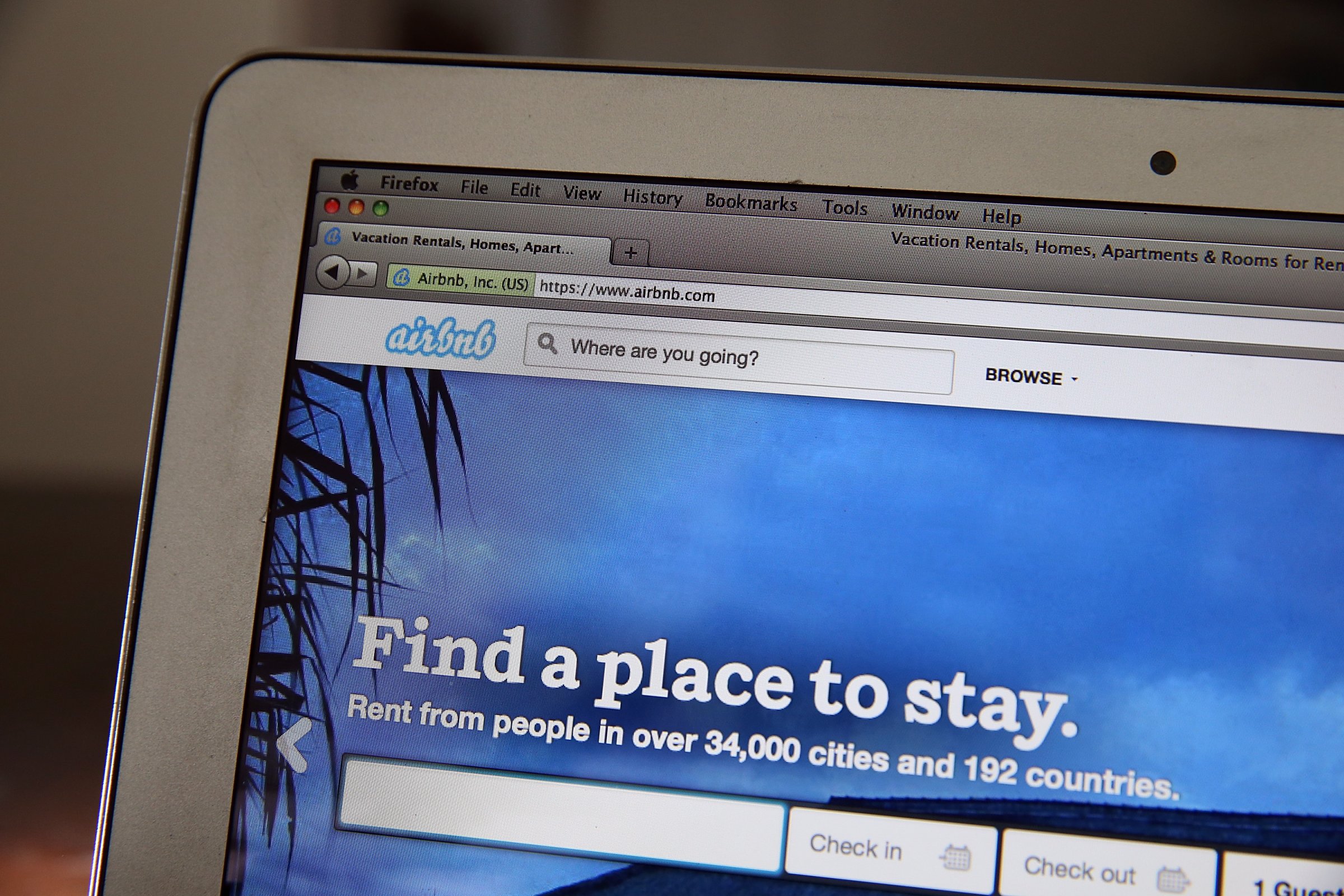
I have learned the hard way, as father to three small boys, that sharing causes conflict. Ask humans to play with the same toy at the same time, and it won’t take long for a fight to break out. The smart move is to find duplicates of that toy or, if that’s impossible, to urge interested parties to “take turns.”
That’s why I’m afraid the much-celebrated “sharing economy”—the catch-all name for “peer-to-peer” firms that connect people for the purposes of distributing, sharing, and reusing goods and services—is likely to produce more fights than profits. States could be embroiled for years in political, legal, commercial and environmental battles related to sharing.
Companies such as the ride-sharing services Lyft and Uber and the apartment-sharing service Airbnb are success stories; Airbnb is already worth more than the Hyatt or Wyndham hotel chains. In the blocks near my Santa Monica, Calif., office are dozens of such growing companies, among them Tradesy (a marketplace for women buying and selling new and gently used clothing) and DogVacay (connecting pet owners with pet sitters).
Sharing services can eliminate waste, improve efficiency, connect people to one another, and allow us to make money on extra stuff in our closets and garages. And if that’s all the sharing economy promised to do, I’d have no reason to worry. But the sharing economy is more than a business sector—it’s a movement, with the grandest of ambitions for our politics, culture and environment.
Over a couple of months of reading about and talking to people in the sharing economy, I’ve been struck frequently by the limitless ambitions of its participants and proponents. Here are just a few of those ambitions: reversing economic inequality, stopping ecological destruction, countering the materialistic tendencies of First World societies, enhancing worker rights, empowering the poor, curing cancer and reimagining our politics.
It would be easy to dismiss sharing economy hype as just more of the self-aggrandizing, self-righteous nonsense for which liberal pockets are well-known. Except that the sharing economy is already threatening to reach into every corner of our lives, from food to photography, education to finance. If that sounds like an exaggeration, consider this: venture capitalists just funded an app to help you find someone to do your laundry for you.
The best adjective to describe this kind of movement is totalitarian. As the Czech novelist Milan Kundera put it, “Totalitarianism is not only hell, but also the dream of paradise.” So my bid to watch your dog while you’re on vacation—and yours to drive me to the airport—is at once freeing and full of dangers. Who’s responsible if your dog bites my kid while in my care? What kind of car insurance, training and licensing do you need to shuttle me safely? What, if anything, do we owe to the kennel workers and cabbies who lose work? And who decides how we govern all of this?
There are so many potential conflicts—along professional, political, commercial, geographic, generational and gender lines—posed by sharing that I couldn’t list them here. To pick just one more: sharing is a threat to the general plans of virtually every city. After all, what is Airbnb if not a rezoning of residential areas into hotel space?
Of course, the movement doesn’t see itself as a starter of wars—and that may be its biggest weakness. Instead of recognizing the conflict and anger that could be produced by their efforts to transform the world, cheerleaders of the sharing economy celebrate its “disruptive” power—as well as its “sustainability.”
Whether being used by the environmental left or the anti-spending right, “sustainability” has become a vague but powerful way to dismiss somebody else’s idea without having to reckon with the particulars. “That’s unsustainable,” means it can’t go on, so why continue to discuss? It’s how we say no to anything new that might cost money or consume energy. So, naturally, almost every government or corporate bureaucracy you encounter–in California at least–has an office of sustainability.
What many states don’t have are the governance infrastructure to host the multi-front battles over sharing and sustainability that are on the horizon. Weak local governments can’t deal with all the new planning, zoning, licensing and regulatory questions posed by this new economic model. Courts are already too crowded to handle basic functions—much less a host of new claims sparked by sharing enterprises. And our political system, with its low voter participation and big money, simply can’t produce definitive, legitimate answers on the big new policy questions posed by all this sharing.
For all its promise, the sharing economy threatens to turn virtually every aspect of living into contested ground. And that’s no way to live.
Joe Mathews writes the Connecting California column for Zocalo Public Square. This piece originally appeared at Zocalo Public Square.
More Must-Reads from TIME
- Cybersecurity Experts Are Sounding the Alarm on DOGE
- Meet the 2025 Women of the Year
- The Harsh Truth About Disability Inclusion
- Why Do More Young Adults Have Cancer?
- Colman Domingo Leads With Radical Love
- How to Get Better at Doing Things Alone
- Michelle Zauner Stares Down the Darkness
Contact us at letters@time.com